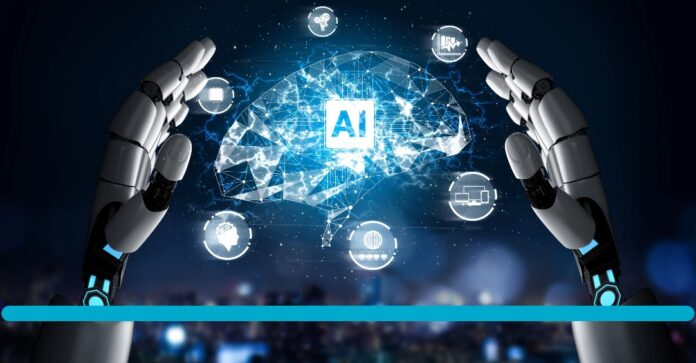Introduction to Artificial Intelligence (AI)
Welcome to the fascinating world of artificial intelligence (AI)! Imagine a future where machines can think, learn, and adapt just like humans. AI is revolutionizing industries, changing the way we live and work. In this blog post, we will explore what AI is all about – from its types and applications to its potential risks. So sit back, relax, and let’s delve into the exciting realm of artificial intelligence together!
Table of Contents
How AI is Changing the World
AI is revolutionizing industries across the globe, from healthcare to finance. It’s not just changing how we work but also how we live our daily lives. By analyzing vast amounts of data in seconds, AI can provide valuable insights and predictions that were previously impossible.
In healthcare, AI is being used to diagnose diseases more accurately and quickly than ever before. In transportation, self-driving cars are becoming a reality thanks to AI technology. Customer service chatbots powered by AI are improving efficiency and response times for businesses.
The impact of AI is undeniable as it continues to streamline processes and enhance decision-making capabilities in various sectors. The possibilities seem endless as researchers push the boundaries of what AI can achieve next.
Types of AI: Narrow vs General
When it comes to artificial intelligence (AI), there are two main types that dominate the field: narrow AI and general AI. Narrow AI, also known as weak AI, is designed for a specific task or set of tasks. It excels at performing these predefined functions efficiently but lacks the ability to generalize beyond its programming.
On the other hand, general AI, often referred to as strong AI or AGI (artificial general intelligence), aims to replicate human-like cognitive abilities across a wide range of activities. Unlike narrow AI, which focuses on specialization, general AI seeks to understand and learn from diverse experiences much like a human brain does.
While narrow AI powers everyday technologies such as virtual assistants and recommendation algorithms, general AI remains more theoretical in nature with ongoing research exploring its potential capabilities and ethical implications. As technology advances, the distinction between these two types of AI continues to shape our understanding of artificial intelligence’s evolving landscape.
Advantages and Disadvantages of AI
Artificial Intelligence (AI) comes with a multitude of advantages and disadvantages that shape our world in various ways. One major advantage is the efficiency it brings to tasks, allowing for faster processing and increased productivity. AI also has the ability to analyze vast amounts of data quickly, leading to valuable insights for businesses and researchers.
On the flip side, one notable disadvantage is the potential job displacement caused by automation through AI technology. This can lead to unemployment in certain industries as machines take over repetitive tasks. Additionally, concerns about privacy and security arise as AI systems gather and process large amounts of personal data.
However, despite these drawbacks, many believe that the benefits of AI far outweigh its disadvantages when used responsibly and ethically. As we continue to harness the power of AI, it’s crucial to consider both sides of the coin in order to navigate this rapidly evolving technological landscape effectively.
Common Applications of AI in Our Daily Lives
Artificial Intelligence (AI) has seamlessly integrated into our daily lives, revolutionizing the way we interact with technology. From personalized recommendations on streaming platforms to virtual assistants like Siri and Alexa, AI has become a ubiquitous presence in our day-to-day routines.
In the realm of healthcare, AI is being used to assist doctors in diagnosing diseases more accurately and efficiently. Additionally, AI-powered fitness trackers help individuals monitor their physical activity levels and set personalized health goals.
In e-commerce, AI algorithms analyze consumer behavior to provide tailored product suggestions and streamline the shopping experience. Furthermore, fraud detection systems powered by AI work tirelessly behind the scenes to safeguard online transactions from potential threats.
Even in transportation, AI plays a vital role through navigation apps that optimize routes based on real-time traffic data. Autonomous vehicles are another groundbreaking application of AI that promises safer and more efficient travel options for the future.
The Future of AI and Potential Risks
As we look ahead to the future of artificial intelligence (AI), the possibilities seem endless. AI is expected to revolutionize industries, streamline processes, and enhance our daily lives in ways we can’t even imagine yet. With advancements in machine learning and deep learning, AI systems will become more sophisticated and capable of handling complex tasks.
However, along with the promise of AI comes potential risks that need to be carefully considered. One major concern is the ethical implications surrounding AI, such as bias in algorithms or invasion of privacy. As AI becomes more integrated into society, ensuring transparency and accountability will be crucial in addressing these issues.
Additionally, there are fears about job displacement as automation continues to replace human labor. It’s essential for policymakers and businesses to collaborate on strategies for upskilling workers and creating new opportunities in an AI-driven economy.
While the future of AI holds immense promise, it’s essential to approach its development thoughtfully and ethically to mitigate potential risks and ensure a positive impact on society as a whole.
Conclusion
Artificial intelligence (AI) is a rapidly evolving technology that has the potential to revolutionize industries and improve our daily lives in remarkable ways. As AI continues to advance, it is essential for us to understand its capabilities, limitations, and ethical implications. By staying informed and actively participating in discussions surrounding AI development, we can harness its benefits while mitigating potential risks. Embracing AI responsibly will be key as we navigate this exciting frontier of innovation. Stay curious, stay engaged, and embrace the future with open minds towards the possibilities that artificial intelligence brings.
